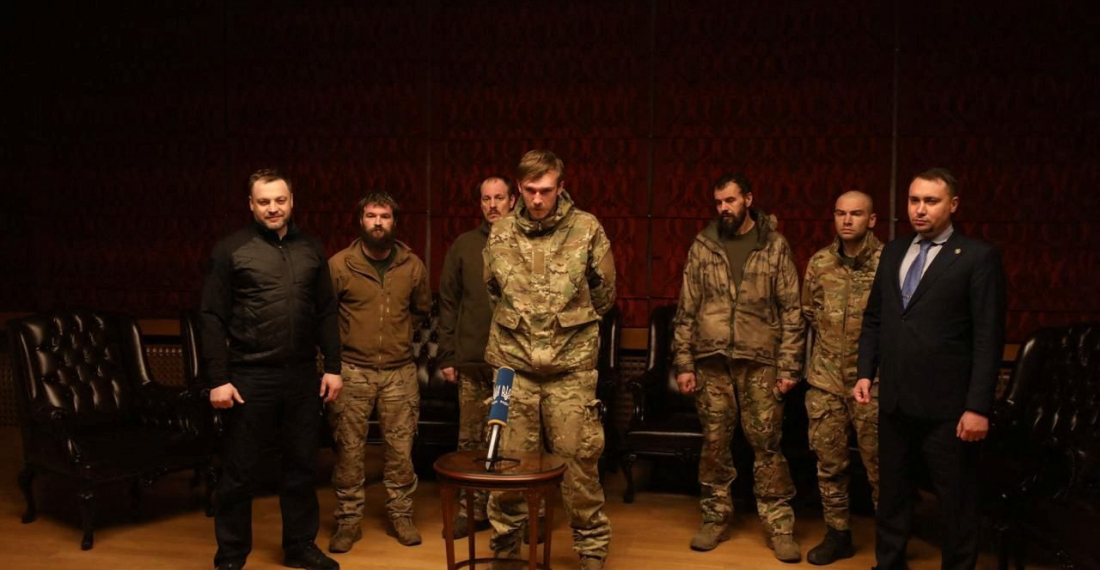In a surprise move, Russia and Ukraine on the night from Wednesday to Thursday (22 September) implemented the biggest prisoner exchange since the start of the war between them in February
Russia released over a hundred captured Ukrainian fighters in a prisoner exchange, including fighters from the Azov battalion.
In numerical terms, the prisoner swap represents a major victory for Ukrainian morale. Among others, Ukraine got back three commanders who led the last Ukrainian resistance in the port city of Mariupol and over 100 more members of the battalion. A total of 215 Ukrainians have been released. Among them are policemen, border guards, soldiers and pregnant fighters.
On the other side of the deal - brokered by Turkey and Saudi Arabia - are 55 Russians and pro-Russian Ukrainians, as well as Ukrainian Kremlin-backed politician Medvedchuk. Putin's friend was arrested by Ukraine's secret service SBU in April in a "dangerous special operation".
In a seperate move ten foreigners who were fighting for the Ukrainian side and were captured by the Russians, were released thanks to the mediation of Crown Prince Mohamed bin Salman of Saudi Arabia.
The Kingdom’s Ministry of Foreign Affairs said in a statement the move was based on the support of Prince Mohammed and in continuation of his efforts to adopt humanitarian initiatives toward the Russian-Ukrainian crisis.
The Saudi crown prince, who has continuously worked with global countries to mitigate the repercussions of the war, held successful mediations in releasing prisoners from Morocco, the US, UK, Sweden, and Croatia, where their release was part of a prisoner exchange between Russia and Ukraine, it added.
“The relevant Saudi authorities received and transferred them from Russia to the Kingdom, and are facilitating procedures for their safe return to their respective countries,” the ministry added.
The ministry also expressed thanks and appreciation that the Russian and Ukrainian governments were able to cooperate with the Saudi government in facilitating and responding to the Saudi crown prince’s efforts to release the prisoners.






